If you need to do it without XML variable (from string in table-valued function)
SELECT
--myTempTable.XmlCol.value('.', 'varchar(36)') AS val
myTempTable.XmlCol.query('./ID').value('.', 'varchar(36)') AS ID
,myTempTable.XmlCol.query('./Name').value('.', 'nvarchar(MAX)') AS Name
,myTempTable.XmlCol.query('./RFC').value('.', 'nvarchar(MAX)') AS RFC
,myTempTable.XmlCol.query('./Text').value('.', 'nvarchar(MAX)') AS Text
,myTempTable.XmlCol.query('./Desc').value('.', 'nvarchar(MAX)') AS Description
--,myTempTable.XmlCol.value('(Desc)[1]', 'nvarchar(MAX)') AS DescMeth2
FROM
(
SELECT
CAST('<?xml version="1.0" encoding="UTF-8" standalone="yes"?>
<data-set>
<record>
<ID>1</ID>
<Name>A</Name>
<RFC>RFC 1035[1]</RFC>
<Text>Address record</Text>
<Desc>Returns a 32-bit IPv4 address, most commonly used to map hostnames to an IP address of the host, but it is also used for DNSBLs, storing subnet masks in RFC 1101, etc.</Desc>
</record>
<record>
<ID>2</ID>
<Name>NS</Name>
<RFC>RFC 1035[1]</RFC>
<Text>Name server record</Text>
<Desc>Delegates a DNS zone to use the given authoritative name servers</Desc>
</record>
</data-set>
' AS xml) AS RawXml
) AS b
--CROSS APPLY b.RawXml.nodes('//record/ID') myTempTable(XmlCol);
CROSS APPLY b.RawXml.nodes('//record') myTempTable(XmlCol);
Or from file:
IF EXISTS (SELECT * FROM sys.objects WHERE object_id = OBJECT_ID(N'[dbo].[tfu_RPT_SEL_XmlData]') AND type in (N'FN', N'IF', N'TF', N'FS', N'FT'))
DROP FUNCTION [dbo].[tfu_RPT_SEL_XmlData]
GO
CREATE FUNCTION [dbo].[tfu_RPT_SEL_XmlData]
(
@in_language varchar(10)
,@in_reportingDate datetime
)
RETURNS TABLE
AS
RETURN
(
SELECT
--myTempTable.XmlCol.value('.', 'varchar(36)') AS val
myTempTable.XmlCol.query('./ID').value('.', 'varchar(36)') AS ID
,myTempTable.XmlCol.query('./Name').value('.', 'nvarchar(MAX)') AS Name
,myTempTable.XmlCol.query('./RFC').value('.', 'nvarchar(MAX)') AS RFC
,myTempTable.XmlCol.query('./Text').value('.', 'nvarchar(MAX)') AS Text
,myTempTable.XmlCol.query('./Desc').value('.', 'nvarchar(MAX)') AS Description
FROM
(
SELECT CONVERT(XML, BulkColumn) AS RawXml
FROM OPENROWSET(BULK 'D:\username\Desktop\MyData.xml', SINGLE_BLOB) AS MandatoryRowSetName
) AS b
CROSS APPLY b.RawXml.nodes('//record') myTempTable(XmlCol)
)
GO
SELECT * FROM tfu_RPT_SEL_XmlData('DE', CURRENT_TIMESTAMP);
e.g.
DECLARE @bla varchar(MAX)
SET @bla = 'BED40DFC-F468-46DD-8017-00EF2FA3E4A4,64B59FC5-3F4D-4B0E-9A48-01F3D4F220B0,A611A108-97CA-42F3-A2E1-057165339719,E72D95EA-578F-45FC-88E5-075F66FD726C'
-- http://stackoverflow.com/questions/14712864/how-to-query-values-from-xml-nodes
SELECT
x.XmlCol.value('.', 'varchar(36)') AS val
FROM
(
SELECT
CAST('<e>' + REPLACE(@bla, ',', '</e><e>') + '</e>' AS xml) AS RawXml
) AS b
CROSS APPLY b.RawXml.nodes('e') x(XmlCol);
So you can have a function like
SELECT * FROM MyTable
WHERE UID IN
(
SELECT
x.XmlCol.value('.', 'varchar(36)') AS val
FROM
(
SELECT
CAST('<e>' + REPLACE(@bla, ',', '</e><e>') + '</e>' AS xml) AS RawXml
) AS b
CROSS APPLY b.RawXml.nodes('e') x(XmlCol)
)

